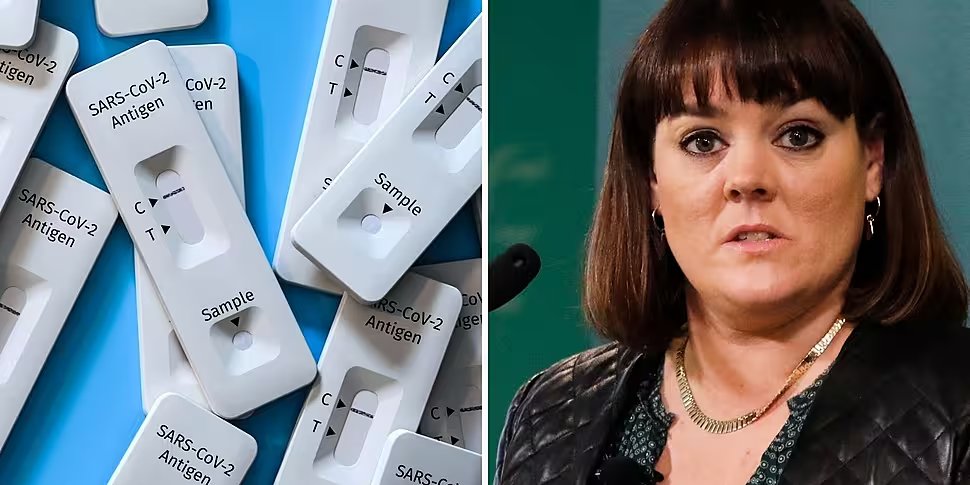Vaccinated close contacts of confirmed COVID-19 cases will get five antigen tests in the post to self-test themselves every second day.
That is part of a new plan to use antigen testing going forward, with over two million DIY home kits ready to be sent out over the coming months.
It is hoped they will play a greater role in tackling rising infection rates, in a major change to the procedures surrounding testing of close contacts.
Asymptomatic close contacts of confirmed cases will be sent a box of five tests in the post to administer themselves.
They will be asked to do tests every second day.
While those with symptoms will need to come straight into the PCR testing system.
HSE National Lead for Testing and Tracing, Niamh O'Beirne, told The Pat Kenny Show how it will work.
"We do, at the moment, do close contact testing for those who are unvaccinated.
"So previous to the vaccination everyone who was a close contact was asked to do two tests on day zero and day 10, and restrict their movements until a 'not detected result'.
"But once people started being vaccinated... we discussed that with them on the phone - so we still notified close contacts, regardless of vaccination status.
"Then we'd call them, and if they tell us they're fully vaccinated - up until now - we've been saying 'They don't need to do anything'.
"But if they're unvaccinated, we move them into the PCR testing system and they do two tests.
How to report test results
She says the measures on Tuesday are in addition to existing ones.
"So the change they've bought out this time is in addition to what we're currently doing.
"Once we have that conversation with the close contact, and recognnise that they're vaccinated, we're going to ask them to do some antigen testing.
"And we're going to explain to them how to get that kit, and what to do once they receive it".
She says while tests will be sent in the post, this will only apply to asymptomatic cases.
"Viruses take time to incubate - so from a clinical perspective our advice is that if we talk to the close contact who is fully vaccinated and no symptoms, if they've any symptoms they need to come straight into the PCR testing system.
"They can discuss that with the tracer on the phone.
"If they've no symptoms, they will then get a link to click to put in their address and the kit will be sent out to them within the next day or so".
Following the five tests, if there is a positive result, you can report this online.
"You report that, and then you're asked immediately to self-isolate and you'll be contacted by our tracers then once you're confirmed on PCR."









